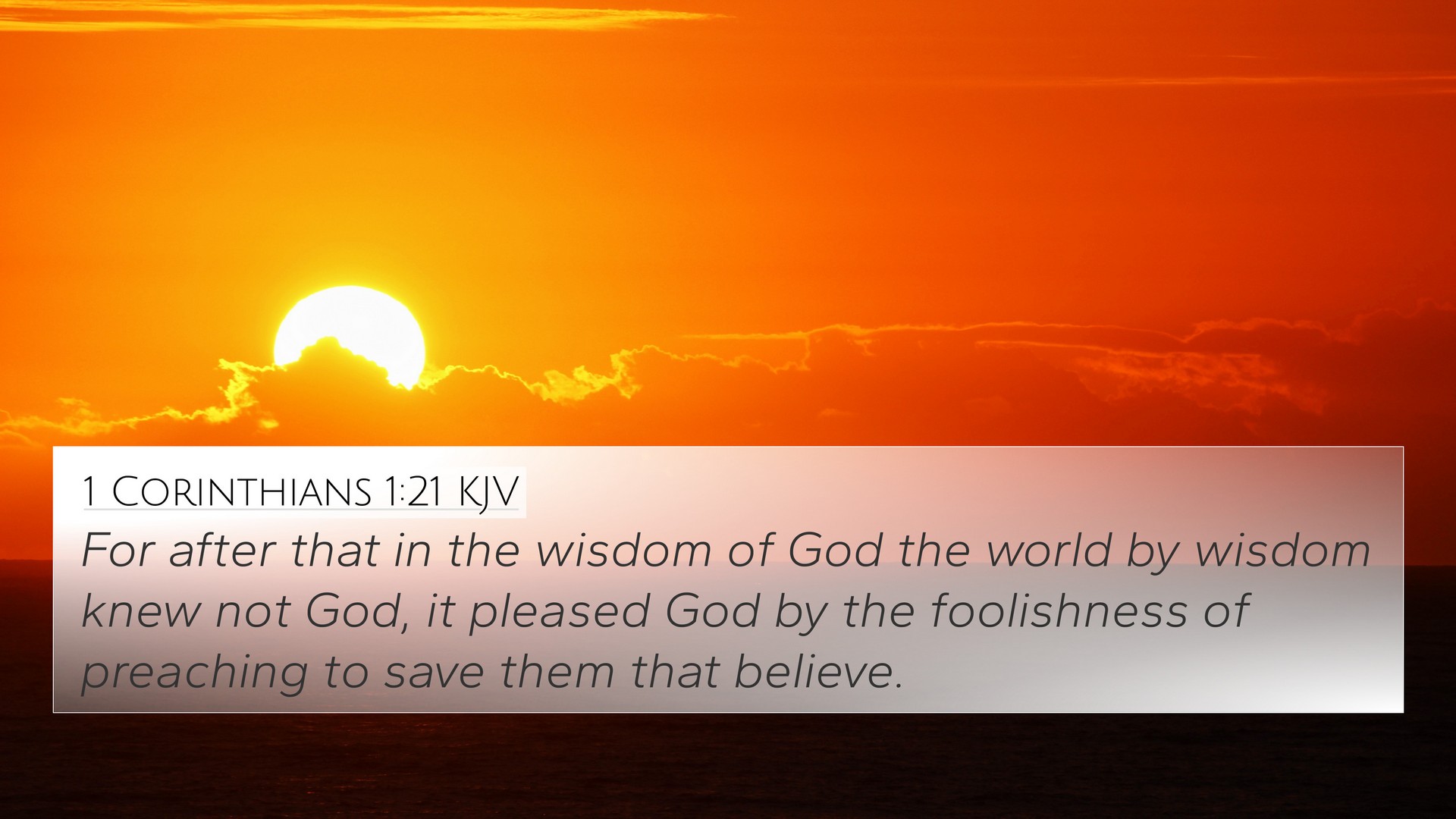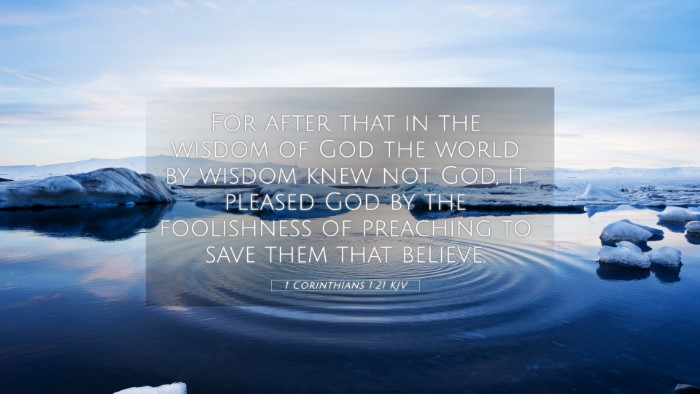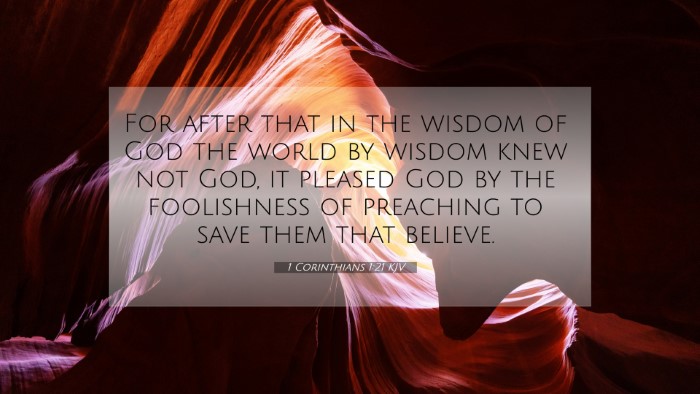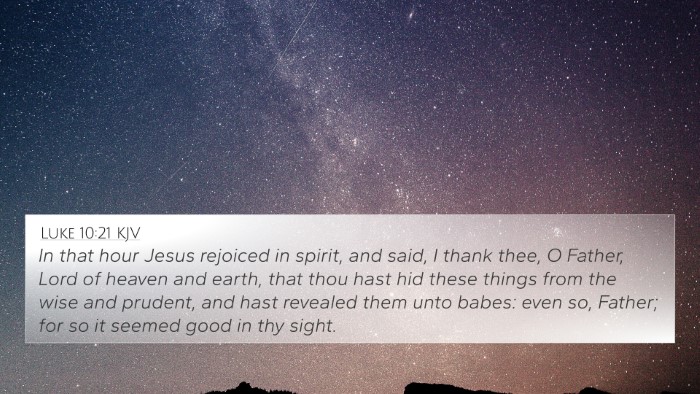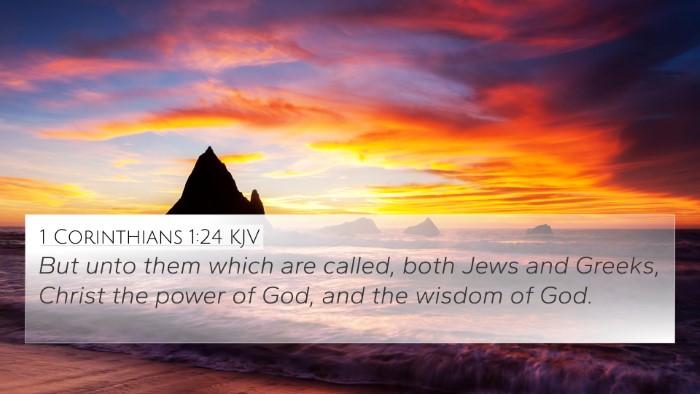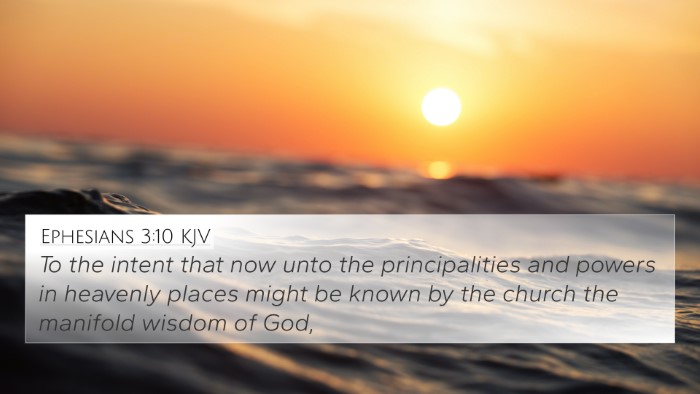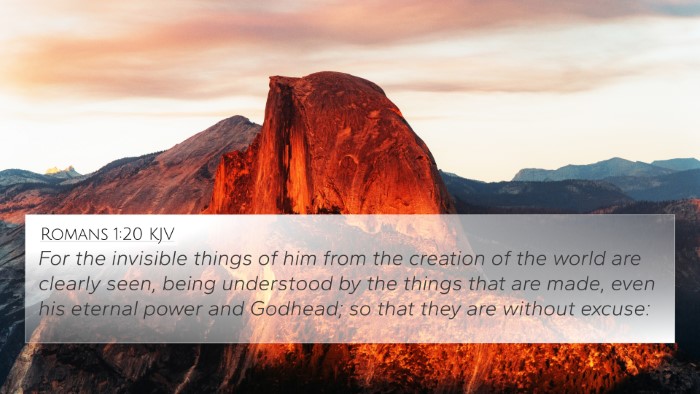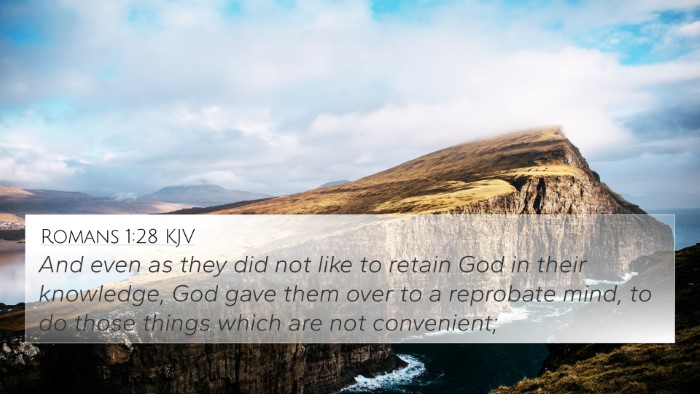Understanding 1 Corinthians 1:21
Verse: "For after that in the wisdom of God the world by wisdom knew not God, it pleased God by the foolishness of preaching to save them that believe." - 1 Corinthians 1:21
Summary of 1 Corinthians 1:21
This verse encapsulates a profound truth about the divine wisdom as opposed to human wisdom. The Apostle Paul stands in contrast between the worldly understanding of wisdom and the divine plan of salvation. While human wisdom seeks knowledge and understanding independent of God, it ultimately falls short of recognizing Him. In contrast, God's method of saving humanity through the 'foolishness of preaching' challenges conventional views, making a compelling statement about faith's power.
Commentary Insights
- Matthew Henry: Henry notes that Paul emphasizes God's choice of preaching as a wise strategy to reach believers. The contrast with worldly wisdom highlights the inadequacy of human understanding in knowing God, suggesting that the proclamation of Christ's message, though seemingly foolish, reveals the true wisdom of God.
- Albert Barnes: Barnes elaborates on the idea that the world through its wisdom failed to achieve a true knowledge of God, reiterating the futility in human wisdom without divine revelation. The 'foolishness of preaching' refers to the unexpected strength in what the world perceives as weakness.
- Adam Clarke: Clarke expands on the concept of God's wisdom by illustrating how humanity's rejection of God is rooted in its preference for its own understanding. He conveys how preaching the Gospel is God's designed method to reach human hearts, which appears foolish to the wise of this world.
Bible Verse Cross-References
- Romans 1:20: Highlights God's nature being evident in creation, suggesting that even the wise can overlook divine truth.
- 1 Corinthians 2:14: Discusses how those without the Spirit cannot discern spiritual truths, underscoring the concept of divine wisdom.
- Matthew 11:25: Jesus thanks God for revealing truths to the humble, aligning with Paul's message of divine revelation over human wisdom.
- Isaiah 29:14: Prophecy establishes a warning against wisdom that is human-centered, affirming the need for God’s perspective.
- James 3:15-17: Contrasts earthly wisdom with heavenly wisdom, resonating with themes of humility and divine insight.
- 1 Peter 2:8: Describes the stone that the builders rejected, echoing the theme of God’s wisdom being perceived as foolishness.
- Romans 11:33: Paul reflects on the depth of the riches and wisdom of God, reinforcing the complexity of divine plans.
- 1 Thessalonians 2:13: Affirmation of the power of the preached Word, aligning with the theme of God using what seems foolish to accomplish His works.
- Philippians 3:18-19: Warns against those who live according to worldly wisdom, prioritizing earthly matters over spiritual insight.
- Colossians 2:8: Paul cautions the church against philosophies that are not grounded in Christ, emphasizing the importance of divine wisdom.
Thematic Connections and Analysis
This verse invites the reader to explore the rich connections between biblical texts, particularly in how they reveal God's method of salvation. The consistent theme of divine wisdom versus human folly can be further explored in the Gospels and the Old Testament, enhancing one’s understanding through a comparative study.
Using tools for Bible cross-referencing, one can find several related verses that illuminate the themes presented in 1 Corinthians 1:21. These connections help demonstrate the cohesive narrative of Scripture regarding faith, wisdom, and salvation. The inter-Biblical dialogue established through these references supports the assertion that God's plans often surpass human understanding.
How to Use Bible Cross-References
For those seeking deeper study, consider the following tips:
- Use a bible concordance to locate similar words or themes.
- Engage in cross-reference Bible study to draw direct lines between verses and overarching themes.
- Identify specific topics of interest and search relevant Bible reference resources for comprehensive insights.
- Utilize a cross-reference Bible study guide to facilitate organized exploration of interconnected scriptures.
- Explore detailed cross-references between the Old and New Testaments to deepen understanding of continuity.
- Document personal reflections on how various verses connect to your understanding of God's wisdom.
Conclusion
1 Corinthians 1:21 serves as a foundational verse that expresses the core of Christian faith — the transformative power of God’s wisdom found in the Gospel. By employing comprehensive cross-referencing and thematic analysis, believers and scholars alike can uncover deeper truths in Scripture and appreciate the distinctiveness of biblical wisdom.
As you continue to explore the richness of the Bible, remember the value of cross-referencing Biblical texts to enrich your understanding, faith, and connection with God's word.
